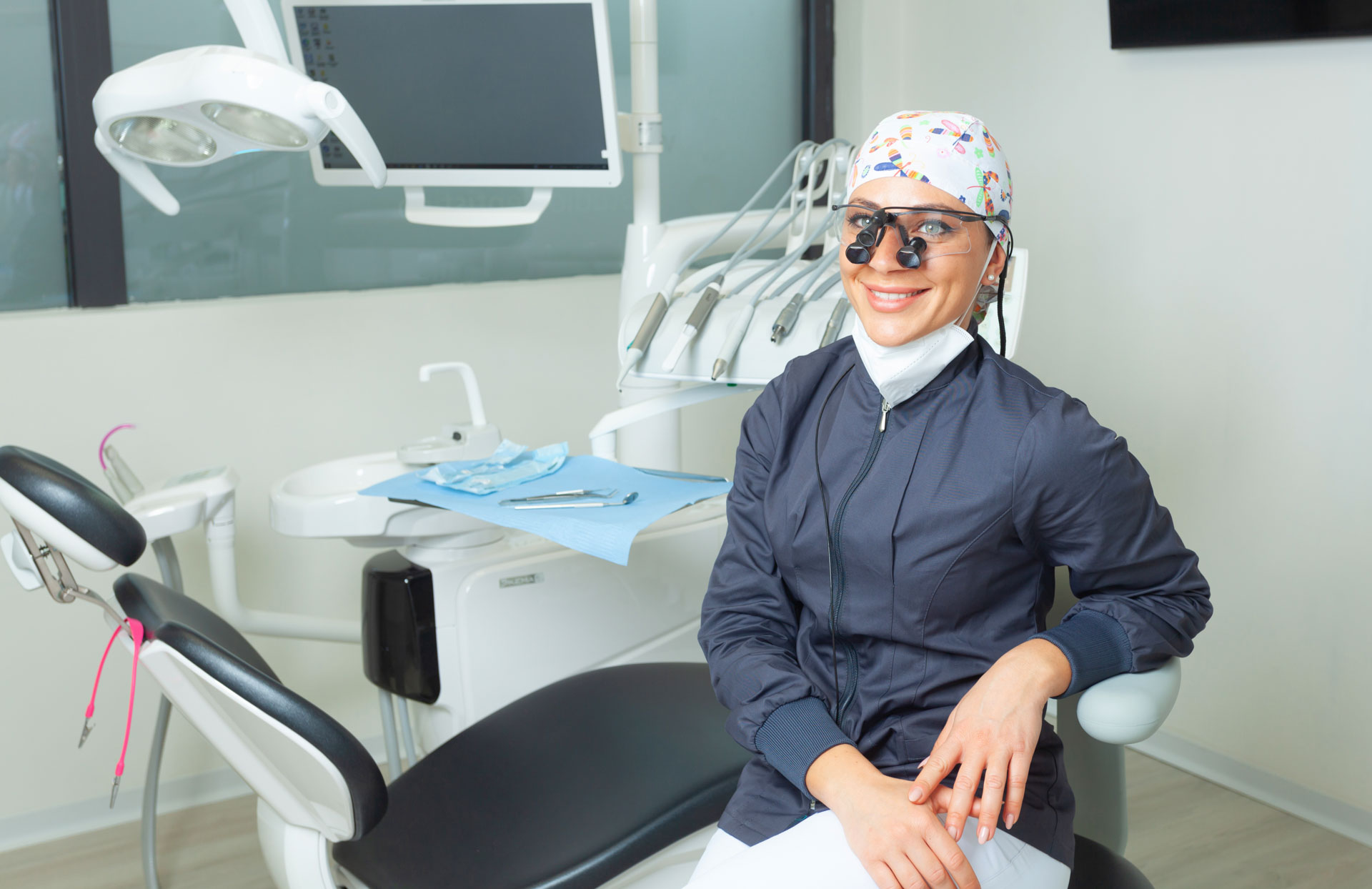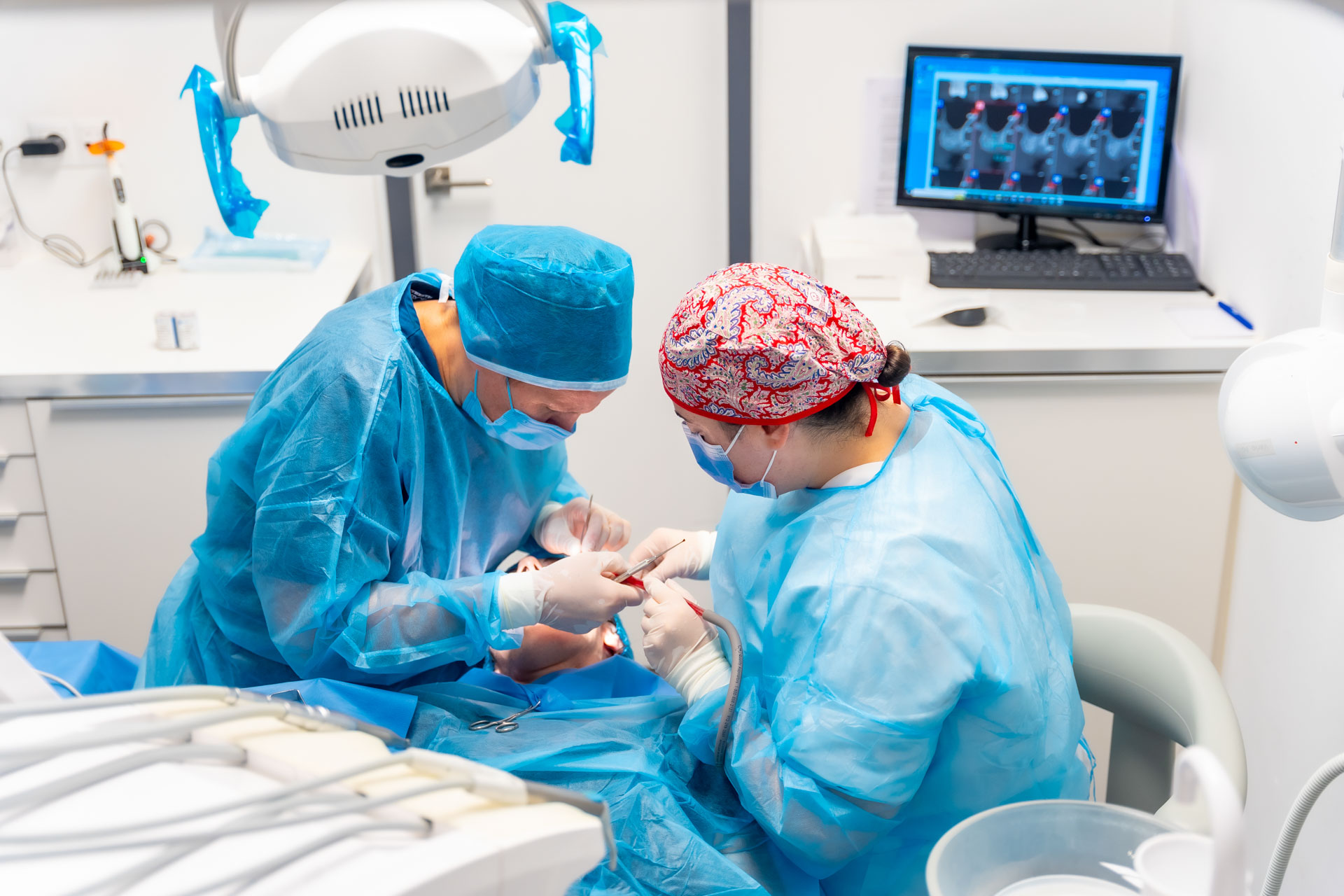Types of Dentistry Specialists
At Dentistry at 1818 Market Street, we specialize in General Dentistry. Sometimes we refer our patients to other, more specialized Dentists – like periodontists, endodontists, orthodontists. The American Dental Association (ADA) recognizes 12 different dental specialties. Here we’re going to go over each specialty since there is so much mysticism and confusion surrounding these different professions.
Dental Specialties
The 12 dental specialties recognized by the ADA include:
1. Endodontist
You’ll likely be referred to an endodontist if your dentist is recommending a root canal. Endodontics is the dental specialty that has the critical responsibility of diagnosing, treating, and preventing infections and injuries in the human dental pulp or the nerve of the tooth. Endodontists deal specifically with issues affecting the nerve of a tooth and the pain associated with it.
2. Orthodontist
If you want to get braces, you’ll most likely speak with an orthodontist. Orthodontics and dentofacial orthopedics is the dental specialty that includes the diagnosis, prevention, interception, and correction of malocclusion (bad bites of the teeth), as well as neuromuscular and skeletal abnormalities of the developing or mature orofacial structures.
Orthodontists specialize in teeth and jaw alignment, using wires, braces, retainers, and other devices. If you have an overbite, underbite, crossbite, or misaligned teeth, you may be referred to an orthodontist for correction. An orthodontist provides teeth straightening by moving them through the bone structure with the use of braces or other corrective appliances.
3. Periodontist
If you’ve been diagnosed with gingivitis, you’ll want to make an appointment with a periodontist. Periodontists help treat and repair diseases and problems of the gums, as well as the supporting structures (bones) of the teeth, whether they are natural or manmade teeth. A periodontist will treat periodontal disease (gingivitis – inflammation of the gums) and periodontitis (gum and bone disease).
While a general dentist will support gum disease prevention, a periodontist will provide treatment (including minor surgery) for tissue damaged by progressive gum disease. You may also be referred to a periodontist for dental implants.
4. Prosthodontist
Prosthodontists repair teeth and jaw bones. Prosthodontics is the dental specialty pertaining to the diagnosis, treatment, and oral function, associated with missing or deficient teeth and/or oral and maxillofacial tissues using biocompatible substitutes.
A prosthodontist will repair natural teeth and replace missing teeth on a larger scale than a general dentist. They will utilize dentures or crowns (caps) as permanent replacements for missing or extracted teeth. Prosthodontists can also provide cosmetic dentistry, or treatments to improve the appearance of teeth, such as teeth whitening and veneers.
5. Oral and Maxillofacial Surgeon
Oral and maxillofacial surgery is the specialty of dentistry which includes surgical treatment of diseases, injuries, and defects involving both the functional and esthetic aspects of the hard and soft tissues of the oral and maxillofacial region. This would include surgery to the face, mouth, jaw, and may work with patients who have tumors, masses, and cysts within the jaws. They may work closely with ear, nose, and throat specialists (ENTs) to treat issues such as sleep apnea and facial trauma.
6. Oral and Maxillofacial Radiologist
An oral and maxillofacial radiologist is a dentist who studies and interprets radiographic images for conditions affecting the head, neck, face and jaws.
Oral radiologists have advanced education and experience in radiation physics, biology, safety and hygiene, which enables them to take and interpret conventional and digital images, computed tomography (CT) and magnetic resonance imaging (MRI) scans, and similar techniques to help diagnose and treat oral-facial diseases and conditions.
7. Dentist Anesthesiologists
Dental Anesthesiologists help patients undergo dental and oral surgery treatment that they may not otherwise be able to receive by providing advanced sedation and general anesthesia care.
Dental anesthesiology is where the specialty of dentistry meets the discipline of anesthesiology – managing pain, anxiety, and overall patient health during dental, oral, maxillofacial, and adjunctive surgical or diagnostic procedures throughout the entire dental process.
8. Oral and Maxillofacial Pathologist
Oral and maxillofacial pathology is the specialty of dentistry and discipline of pathology that deals with the nature, identification, and management of diseases affecting the oral and maxillofacial regions. It is a science that investigates the causes, processes, and effects of these diseases. Conditions may include impacted wisdom teeth, oral reconstruction, misaligned jaws, and cancers of the mouth, head, and neck.
9. Pediatric Dentist or Pedodontist
Pediatric dentistry or pedodontics is an age-defined specialty that provides both primary and comprehensive preventive and therapeutic oral health care for infants and children through adolescence, including those with special health care needs. This dentist can identify and address the onset of decay, crowding, crookedness, falling teeth, and other oral health problems.
Pediatric dental specialists offer youth-friendly approaches to routine dental care as well as pediatric-specific dental issues. A pedodontist will monitor a child’s teeth and oral development, referring them to an orthodontist, when needed.
10. Orofacial Pain (OFP)
Orofacial Pain is the specialty of dentistry that encompasses the diagnosis, management, and treatment of pain disorders of the jaw, mouth, face, head, and neck.
11. Oral Medicine
Oral Medicine is the specialty of dentistry responsible for the oral health care of medically complex patients and for the diagnosis and management of medical-related diseases, disorders, and conditions affecting the oral and maxillofacial region.
12. Dental Public Health (DPH)
Dental public health helps to prevent and control dental diseases and promote dental health through organized community efforts including dental research and dental care.

Visit Dentistry at 1818 Market Street
It’s important to visit us at Dentistry at 1818 Market Street twice a year – not just for teeth cleaning, but also for an examination that ensures your oral health. Receiving a professional opinion will help you manage any potential problems before they become bigger problems. Call us immediately if you’re experiencing any pain in your mouth.
For dental emergencies – such as a chipped tooth, a tooth filling falling out, or tooth abscess – seeing us at our Center City general dentistry office should be your first step. We’ll provide a thorough examination and will be able to refer you to the most appropriate dental professional, if needed.





























